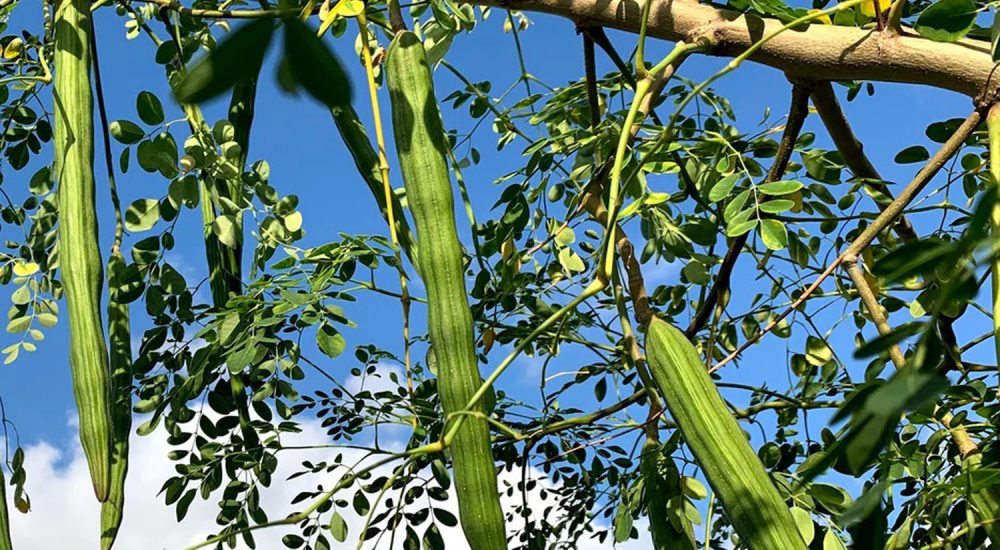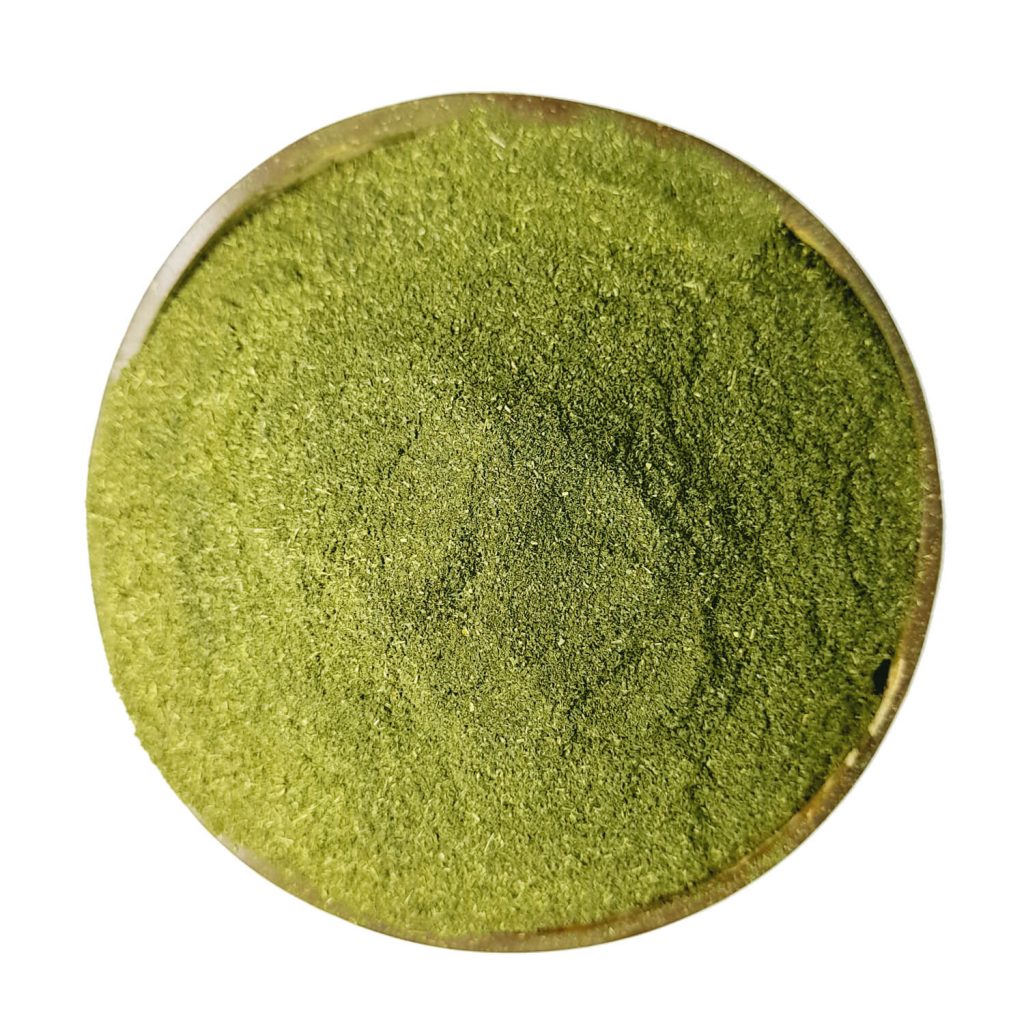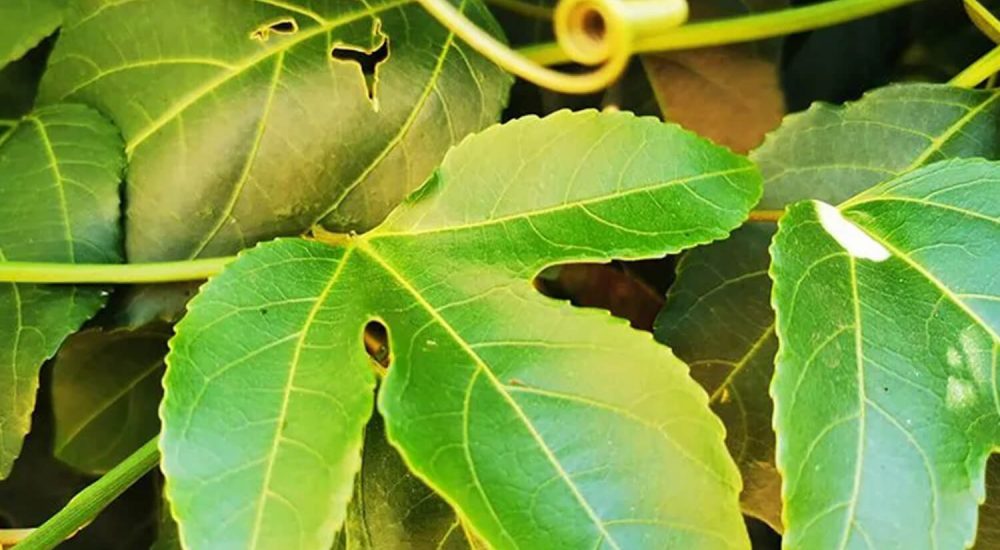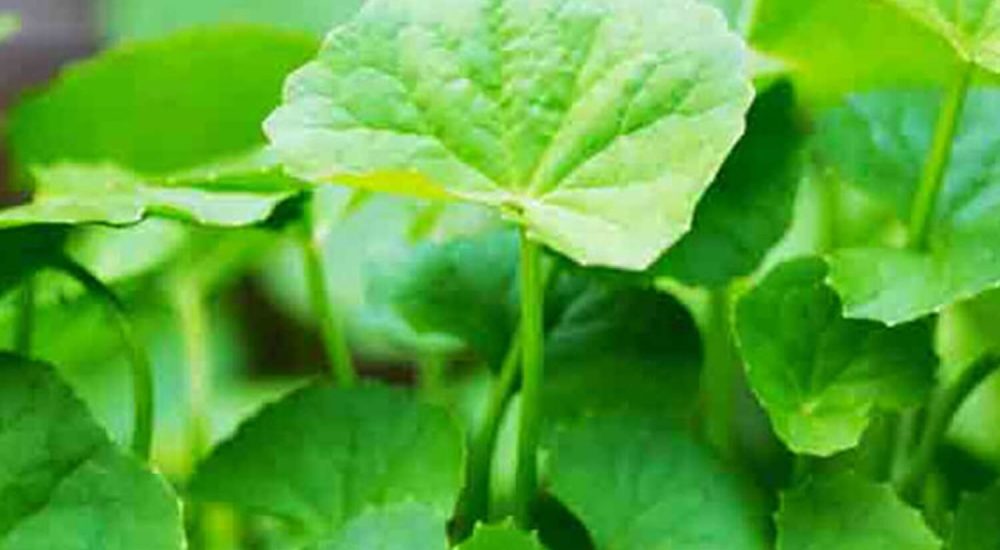Passiflora edulis, commonly known as passion fruit, is a tropical vine species belonging to the…

7 Benefits of Moringa Oleifera Leaves
Moringa Oleifera is a tree that is native to parts of South Asia, but is now widely cultivated in tropical and subtropical regions around the world. It is also known as the drumstick tree, horseradish tree, or ben oil tree.
The tree has a long history of use in traditional medicine, and many parts of the plant are edible and have nutritional value. For example, the leaves are a good source of vitamins and minerals, and can be eaten fresh or dried and powdered for use as a dietary supplement. The seeds can be pressed to extract a valuable oil that is used in cooking, as well as in cosmetics and for other purposes.
Moringa Oleifera is also being studied for its potential health benefits, including its antioxidant and anti-inflammatory properties, and its ability to lower blood sugar levels and cholesterol. However, more research is needed to fully understand the potential benefits and risks of using this plant for medicinal purposes.
Benefits of Moringa Oleifera Leaves
Moringa Oleifera leaves are a particularly nutrient-dense part of the plant, and are commonly consumed as a vegetable or used to make tea or supplements. Here are some of the potential benefits of consuming moringa leaves:
- Nutrient-rich: Moringa leaves are high in a variety of nutrients, including vitamin C, vitamin A, calcium, potassium, and iron. They also contain protein and all nine essential amino acids.
- Anti-inflammatory properties: Moringa leaves contain compounds with anti-inflammatory properties, which may help to reduce inflammation in the body.
- Antioxidant properties: Moringa leaves are high in antioxidants, which can help to protect the body from oxidative stress and reduce the risk of chronic diseases such as heart disease, diabetes, and cancer.
- Lowering blood sugar levels: Some studies have found that moringa leaves may help to lower blood sugar levels, which could be beneficial for people with diabetes.
- Lowering cholesterol: Moringa leaves may also help to lower cholesterol levels, which can help to reduce the risk of heart disease.
- Improving digestive health: Moringa leaves are a good source of fiber, which can help to improve digestion and promote regular bowel movements.
- Boosting immune function: Moringa leaves contain compounds that have been shown to boost immune function and may help to protect against infections.
It’s worth noting that while moringa leaves are generally safe to consume, they may interact with certain medications or have adverse effects in large quantities. As always, it’s best to speak with a healthcare provider before starting any new supplements or making significant changes to your diet.

How to use Moringa Oleifera Leaves
Moringa Oleifera leaves can be consumed in a variety of ways. Here are some common ways to use them:
- Fresh leaves: Moringa leaves can be eaten fresh, either on their own or added to salads, soups, or stews.
- Dried leaves: Moringa leaves can be dried and ground into a powder, which can be added to smoothies, juices, or water. The powder can also be used to make tea.
- Supplements: Moringa leaf supplements are available in capsule or tablet form, and can be taken daily as a dietary supplement.
- Oil: Moringa oil is derived from the seeds of the plant, but can also be made from the leaves. It can be used in cooking or applied topically to the skin.
When using moringa leaves, it’s important to keep in mind that they are potent and can have side effects in large quantities. It’s best to start with a small amount and gradually increase the dosage if needed. Additionally, if you are pregnant or taking medications, it’s best to speak with a healthcare provider before using moringa leaves or supplements.




This Post Has 0 Comments